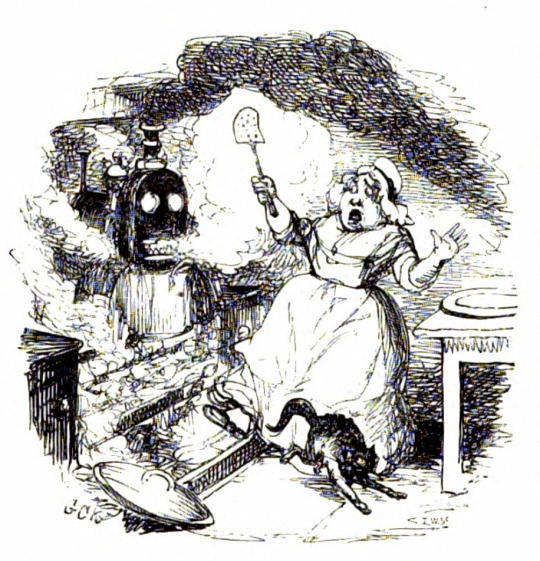#'in former times each class of persons had their modes of travelling'...imagine going backwards from 1845
Text
Eighteen-Forties Friday: The Railway Dragon

An illustration by George Cruikshank in The Table Book, 1845 (The British Museum). The commentary in Richard A. Vogler's book Graphic Works of George Cruikshank adds that the accompanying text signed by Angus B. Reach and titled "The Natural History of the Panic" details "the way this monster has destroyed Englishmen by gobbling up their money."
Conveniently, another book from 1845 addresses the crises driven by financial speculation in railroads: The Railway Panic: Hints to Railroad Speculators, Together with the Influence Railroads Will Have Upon Society, Together with the Laws on the Subject, by Henry Wilson (Google Books). Although Wilson denounces "modern schemers" and speculation, he's very pro-railroad, and he even thinks that railway travel will break down class barriers:
In former times, each class of persons had their modes of travelling. There was for the rich, the post chaise; for the country gentleman, the mail; for the tradesman, the stage coach; and for the poor, the waggon; a man's respectability was established by the mode in which he travelled. The difference between railway and stage coach travelling is nearly all the difference between civilization and barbarism. The railways will, ultimately, reverse the picture; and the rich will be brought in contact and converse with the poor, sympathies are engendered between the various classes, and the manners of the higher class descend to the lower.
Karl Marx evidently thought something similar in 1848, according to William Scheuerman in The Stanford Encyclopedia of Philosophy (Spring 2023 Edition): "Despite their ills as instruments of capitalist exploitation, Marx argued, new technologies that increased possibilities for human interaction across borders ultimately represented a progressive force in history."
It was Scheuerman's article on globalization that made me reflect on "the compression of territoriality," as he puts it, with new modes of travel making the world seem more accessible and smaller in the 1840s.
Writing in 1839, an English journalist commented on the implications of rail travel by anxiously postulating that as distance was “annihilated, the surface of our country would, as it were, shrivel in size until it became not much bigger than one immense city” (Harvey 1996, 242). A few years later, Heinrich Heine, the émigré German-Jewish poet, captured this same experience when he noted: “space is killed by the railways. I feel as if the mountains and forests of all countries were advancing on Paris. Even now, I can smell the German linden trees; the North Sea’s breakers are rolling against my door” (Schivelbusch 1978, 34)

Or maybe just a train monster in your kitchen
#Eighteen-Forties Friday#1840s#railways#railroads#age of steam#early victorian era#victorian#karl marx#george cruikshank#the railway panic#globalization#'in former times each class of persons had their modes of travelling'...imagine going backwards from 1845
67 notes
·
View notes